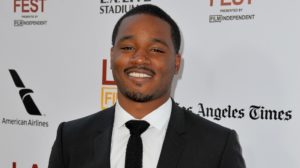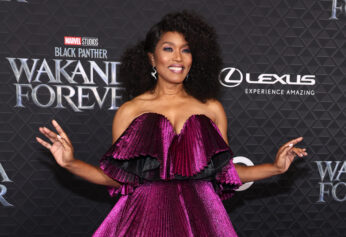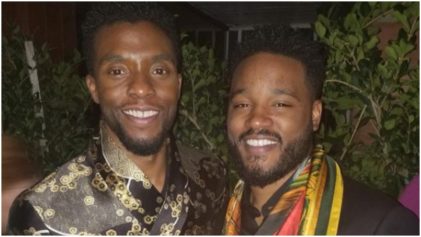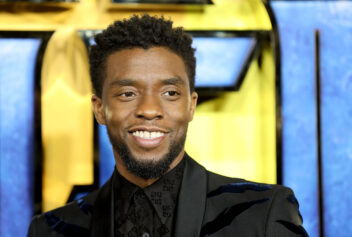In a market saturated with competition from blockbuster franchises, family-friendly animated favorites, superhero movies, best-selling book adaptations, biopics, and a flurry of dramatic Oscar bait, no film in 2015 has packed the punch of Creed, the seventh installment in the Rocky series. The Ryan Coogler film, little talked about before it’s Thanksgiving opening, moved audiences and critics to tears and praises, being hailed as one of the best movies of the year.
The film puts us in the life of Adonis Creed (Michael B. Jordan), the son of late boxing champ Apollo Creed, Rocky Balboa’s foe-turned-friend who died in the ring during the franchise’s fourth incarnation. Drawn to the brawl his entire life, Adonis finds the boxing ring and fights for his own legacy while learning to embrace the one his famous father left behind. On his journey, he seeks out Rocky to train him.
Coogler has reinvigorated a beloved franchise with uncanny skill by creating a story that is at once deeply personal and universally relatable. It’s easy to understand how that’s possible when you learn that the story was created from Coogler’s own reality–one where his father had grown sick, leading him to contemplate the question of what it means to be a man. That question was the birth of Creed. The Rocky films were a staple in the Coogler household due to Ryan’s father’s own emotional connection to the films. Nuanced emotional performances from the movie’s stars make it impossible not to feel the story to your core as it explores themes of hope, determination, self-doubt, family, legacy, masculinity and perseverance.
Creed has pulled in more than $100 million at the box office so far and made Stallone, Jordan, and Coogler worthy of the Oscar conversation. After memorable roles on the critically-acclaimed television shows, Friday Night Lights and The Wire, Jordan wooed critics with a notable performance in the Coogler-directed film, Fruitvale, before teaming up with the director again for Creed. The two are proving to be a dynamic duo. Coogler is on his way to becoming one of the most influential voices of his generation, and with the recent confirmation that he will direct the Black Panther movie, it’s impossible not to root for him.
The 29-year-old writer and director chatted with Atlanta Blackstar about how he got his foot in the door with Sylvester Stallone to direct the latest Rocky movie before he even shot his first film, his brotherhood with actor Michael B. Jordan, his views on diversity progress in entertainment, and of course, that coveted golden statue that may soon have us tacking on the words “Oscar-Winning” to the Creed title.
Creed is a hit. It opened to $29 million Thanksgiving weekend. It’s praised by critics. How do you feel? Have you been able to take it in?
It feels exciting that people are going to see it, for sure. There’s a lot of pressure on movies, man. It’s something that you can’t really control. We made the movie at MGM and they greenlit the movie, thinking that it’s something that people would want to go see. Warner Bros. markets the movie, but at the end of the day, it still has to connect, so the fact that people are going out to see it, especially with some of the competition that’s out there, it’s really heartwarming to see.
I read that while you were in the process of getting ready to shoot Fruitvale in 2012 you were already developing Creed. You hadn’t even shot your debut film and you were working on creating the next Rocky movie. You were setting up meetings with Sylvester Stallone. How did you even get in contact with him?
It was through my agents. I got signed with an agency when I was at the Sundance Screenwriters Labs. I guess that was 2012. It was at 2012 “labs” when I met an agent named Craig Kesstel who works at WME. I ended up signing with Craig, and then Craig put me with Charles King as well. I pitched Craig and Charles what this idea was I had for the Rocky movies and then I pitched an agent named Adam Bennett. Adam Bennett also represents Sylvester Stallone, so Bennett kind of took charge over the project and got into Sly’s ear and he set up a meeting with Sylvester Stallone. The meeting with Stallone was right before I started shooting Fruitvale.
What does he say to get you, an unknown kid, into the room?
I don’t know, man. I’m not sure what he said. It was Adam and Sly’s former business partner, Kevin King. I guess they said the meeting was worth taking. I got a call while I was in Oakland prepping Fruitvale and they said, “hey man, Sly’s got a couple hours–he wants to sit down with you and talk.” Then we met, he listened to the pitch, and then he signed a couple T-shirts for my dad. Then I went back to Oakland.
What was the experience like meeting Stallone and telling him your vision for another Rocky movie?
It was a bit overwhelming. Anytime you meet someone like that it’s overwhelming. I remember meeting him and just kind of realizing that the character Rocky is a construction. It’s something he constructed out of his performance–out of his writing. He’s nothing like the character. I remember being really excited to work with him as an actor.
Was there any anxiety for you to direct Stallone, a veteran writer, director, actor in a film that was an extension of the story he created? I mean, this is his legacy.
Definitely. I was nervous. As we worked together, I was less and less nervous to the point that I was completely comfortable with it. I would say like a week into it, it was like we were all friends. We worked together quite a bit in the development phase. I got to know him. He got to know me. He got to know Michael [B. Jordan]. He got to know Tessa [Thompson]. Once we all knew each other, it was great.
The Creed film is like Rocky passing the torch to Adonis– this is his saga now. Behind the camera, it actually reflects what’s happened with you taking the reigns from Stallone. Is there any plan to continue Donny’s story in other sequels the way Stallone did with Rocky?
I think that with this story it was something that started off, to me, very singular but I think that once we have some distance from the release and everything that’s surrounding it, that’s something we could better make a call on. If the opportunity came again to work with these folks I’d be really excited.
So you’d be interested in making a second one?
Definitely.
Michael B. Jordan, he is officially in leading man territory now, thanks to Creed. He was a working actor prior to Fruitvale but it’s safe to say that your film was the catalyst that accelerated his career. His success mirrors your own. Since Fruitvale, you both have enjoyed an increase in attention and respect in the industry. What’s the relationship like between you two?
Between me and Mike? Oh, we’re friends. We’re like family. Going through making Fruitvale together and going through making this together, we’re very close. We work well together and I think that the best thing about our relationship is that we bring out the best in each other in the work environment, but also our working relationship allows other collaborators that we’re working with to be very comfortable as well. I think the relationship between the director and lead actor, in many ways, is one of the work relationships that sets the tone for the whole set.
I think that everybody looks at that relationship and it kind of goes from there. If the director and the lead actor aren’t getting along, then it’s kind of a trickle down chemistry, if that makes sense. But if the director and actor are getting along well and are having fun and able to move fast and work at a high level, it’s something that’s inspiring and also motivating to everybody else. It sets the tone of a healthy collaboration.
You and Michael are two young, educated, creative Black men in a position of increasing influence, do you consciously think about that?
I try not to think about stuff on a macro term, as far as myself, because I think that’s where you get into trouble in terms of your decision-making as a businessman and as an artist when you’re feeling a lot of outside pressure, a lot of outside responsibility. But, I think that who we are as people, that’s something that’s very ingrained in us—an awareness of self. As a Black man in this country, you can’t survive if you ever forget that’s what you are, so it’s something that we are conscious of and we carry that with us, but when it comes to professional life and just the decision-making, we make it in a way that’s very personal. I know Mike is not going to do a project if he can’t find a personal motivation in it. It’s definitely that way with me.
Viola Davis said in her Emmys speech that all that’s missing is opportunity for Black women, and we could extend that to Black men as well. As a Black director, is that a goal of yours, to create opportunity and provide representation to people of color?
Yeah, absolutely. As a filmmaker you have an opportunity–and I’m a writer-director–you have an opportunity to create roles, for sure. It’s something that exists. It’s something that I’m committed to but I think we need more opportunities for filmmakers. The people who make these opportunities are studio heads and filmmakers. It’s not a case of “the chicken or the egg” in this situation. It definitely starts at the top. It starts with the people who are funding the material and the people who are creating the material, and until we see more diversity in those places or opportunities for diversity in those places, at the end of the assembly line, when you’re seeing the movie in the theater, you’re going to see a lack of representation, still.
There’s this trend towards diversity right now. People are calling for more female and minority influences and stories, but will it stick? Or is diversity the buzzword of the moment?
It’s difficult to make assumptions about where things are going because you never know. Things get better and then they get worse. I think people often think of progress as this constant upward thing. When it’s totally not true. It’s really ebbs and flows. I remember when I was young, television was more diverse than when I was in high school and college. I remember a period when it was Black shows and Black characters all over TV and then there was a period when it was completely white. So, I think it goes in ebbs and flows, and it really goes how the marketplace performs.
I think that this past year you had movies with diverse casts that made a lot of money. You had Fast and Furious 7, you had Straight Outta Compton, you had Ride Along that’s got a sequel and becoming a franchise, you had Empire on network television, so when you have these things with diverse casts that make money you can be sure that studios are going to try to go back to that wheel, but the margin of error for minorities is not as wide as it is for whites, I’ll tell you that, so all it takes is for a couple things to miss and we could be right back to where it was at before.
There was little talk about Creed before it came out. Now, there’s Oscar buzz. There are comparisons to the original Rocky film that took home three Oscars including Best Picture back in 1977. It looks like the movie is in the running for that. How does that feel for your second feature film to be receiving Oscar buzz? Do you buy into it? Will you all campaign for it?
Yeah, I think it is something that we’ll campaign for. I think it’s always great to have people say nice things about the film. I think that as a director, I always want my collaborators, my actors, to get a lot of love for the work I saw first hand. I would love to see Michael and Sly and Tessa get everything good coming their way. We’ve been fortunate to be in the mix with some of these awards, so it’s an honor.
You’ve got Oscar buzz, you’re taking on an increasingly busier schedule and bigger films, I have to ask, do you still work at the juvenile hall? I know you said you did when Fruitvale was out.
I’m still employed there but I don’t still actively work there–my father does, though. I go up from time to time but I’ve been too busy lately to take shifts.



